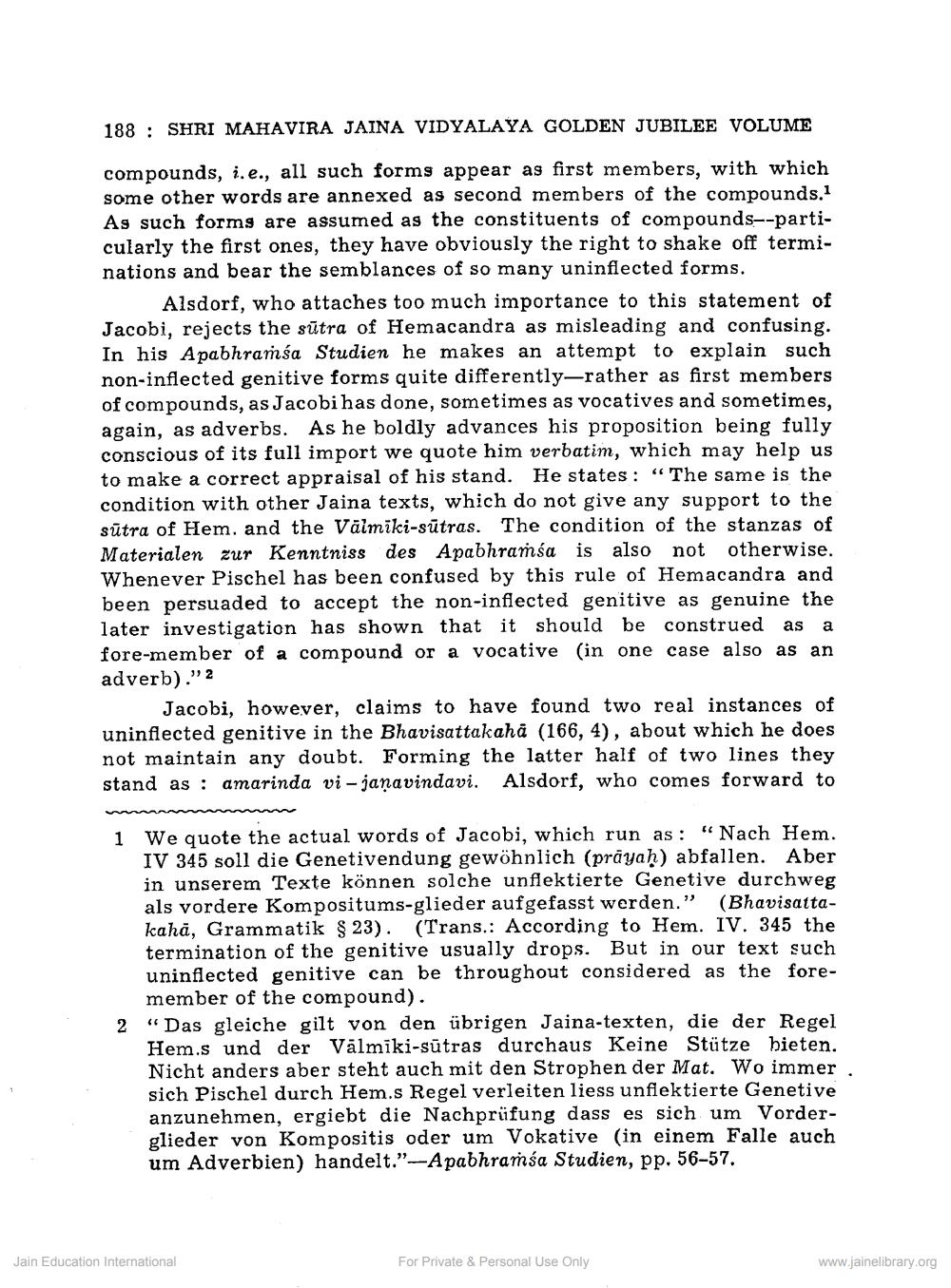________________
188 : SHRI MAHAVIRA JAINA VIDYALAYA GOLDEN JUBILEE VOLUME
compounds, i.e., all such forms appear as first members, with which some other words are annexed as second members of the compounds.1 As such forms are assumed as the constituents of compounds--particularly the first ones, they have obviously the right to shake off terminations and bear the semblances of so many uninflected forms.
Alsdorf, who attaches too much importance to this statement of Jacobi, rejects the sūtra of Hemacandra as misleading and confusing. In his Apabhraṁsa Studien he makes an attempt to explain such non-inflected genitive forms quite differently-rather as first members of compounds, as Jacobi has done, sometimes as vocatives and sometimes, again, as adverbs. As he boldly advances his proposition being fully conscious of its full import we quote him verbatim, which may help us to make a correct appraisal of his stand. He states: “The same is the condition with other Jaina texts, which do not give any support to the sūtra of Hem. and the Vālmīki-sūtras. The condition of the stanzas of Materialen zur Kenntniss des Apabhramsa is also not otherwise. Whenever Pischel has been confused by this rule of Hemacandra and been persuaded to accept the non-inflected genitive as genuine the later investigation has shown that it should be construed as a fore-member of a compound or a vocative (in one case also as an adverb).”2
Jacobi, however, claims to have found two real instances of uninflected genitive in the Bhavisattakahā (166, 4), about which he does not maintain any doubt. Forming the latter half of two lines they stand as : amarinda vi- jaņavindavi. Alsdorf, who comes forward to
1 We quote the actual words of Jacobi, which run as : "Nach Hem.
IV 345 soll die Genetivendung gewöhnlich (prāyah) abfallen. Aber in unserem Texte können solche unflektierte Genetive durchweg als vordere Kompositums-glieder aufgefasst werden." (Bhavisattakaha, Grammatik $ 23). (Trans.: According to Hem. IV. 345 the termination of the genitive usually drops. But in our text such uninflected genitive can be throughout considered as the foremember of the compound). "Das gleiche gilt von den übrigen Jaina-texten, die der Regel Hem.s und der Vālmīki-sūtras durchaus Keine Stütze bieten. Nicht anders aber steht auch mit den Strophen der Mat. Wo immer sich Pischel durch Hem.s Regel verleiten liess unflektierte Genetive anzunehmen, ergiebt die Nachprüfung dass es sich um Vorderglieder von Kompositis oder um Vokative (in einem Falle auch um Adverbien) handelt."-Apabhramśa Studien, pp. 56-57,
Jain Education International
For Private & Personal Use Only
www.jainelibrary.org




